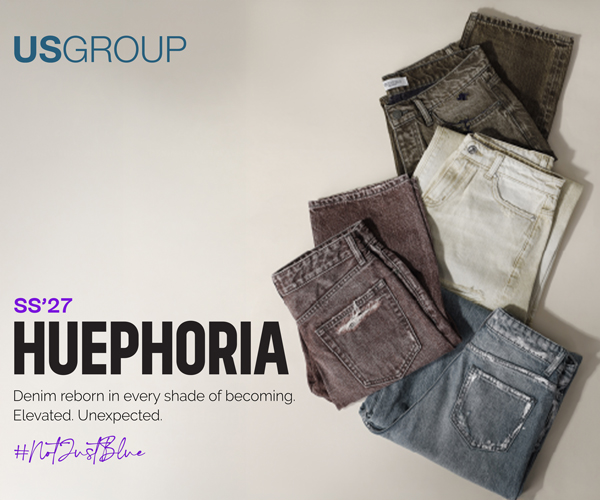Stellar progress towards circular ambitions

Dutch brand G-Star Raw says customers are increasingly invested in sustainability.
Q: How important is it to embrace initiatives such as Cradle to Cradle and why did you select this standard to follow? How much of the responsibility for creating lower-impact product lies with the brand?
A: If we want to be here as a denim brand in the future, we need to design in closed loops today. The Cradle to Cradle Products Innovation Institute helps us to do just that. Their philosophy is inspired by nature, where there is no concept of waste; all materials are reutilised in cycles. Closed loop or circular design strives to mimic these natural principles. It is crucial for the entire industry to embrace this circular approach, so we can make the most efficient use of resources and drastically improve our combined environmental impact.
In 2018 we presented the world’s first Cradle to Cradle Certified Gold denim fabric through Our Most Sustainable Jeans Ever. The innovative fabric contained 100% organic cotton and was dyed using zero harmful chemicals while not wasting a single drop of water. We have been building on this innovative fabric ever since to expand our sustainable offer and make it easier for our customers to make a responsible choice.
How easy is it to explain Cradle to Cradle, and other sustainability drives, to your customers, and what are their reactions?
Circularity is a complex topic, it encompasses so many aspects which makes it hard to explain in just a few sentences. Circularity looks at much more than just the raw materials or just the water usage. It looks at the entire product lifecycle and that is exactly what we need to educate our customers about, because they are part of the process as well and they can contribute, too, through how they take care of their garments or how they part from them. So, although it is a challenge to bring the bigger story across, we feel it is our responsibility to do so because when our customers truly understand, we can make the biggest impact, together.
G-Star has set a target that by 2025, 75% of materials will be recycled, organic, bio-based or compostable, and in 2030 this will be 100%. How close are you to achieving this, and what are the hurdles?
We are confident that we will make these targets, we see an exponential growth in our sourcing of more sustainable materials. Given the progress we are making right now, we might even exceed the target of 75% by 2025. One of the most difficult hurdles for the denim industry is the scarcity of organic cotton. We recently joined the Organic Cotton Accelerator to support more and more conventional cotton farmers making their way to organic cotton farming, securing a greater availability of organic cotton.
Another hurdle is in the quality and durability of recycled cotton. The fibres are shorter and more vulnerable after the recycling process, and often need to be mixed with conventional cotton to achieve the same level of quality. To reach our targets, we need to be part of the process to raise the demand, to support transformation, to find solutions for all hurdles and to innovate the industry.
Could you tell us a bit more about your new fabric with a regenerative indigo dyeing concept?
In collaboration with Italian denim mill Candiani, we introduced a denim fabric with the world’s first regenerative indigo dyeing concept. This means that the waste from the indigo dyeing process is developed to function as a fertiliser or food for the agricultural industry.
What would a new supplier have to do to impress you or to make you partner with them?
Suppliers with an innovative mindset that can offer fibres and blends that add to circularity (in the entire process) without losing durability. We want our suppliers to be our partner in this process, rather than have them merely comply with our regulations.
In terms of your worker-focused strategies, one of the goals is working towards an industry-wide agreement on regional living wages by 2025. Can you give us any update on how you will do this?
By being a member of ACT on Living Wages we aim to achieve living wages for all textile workers through collective bargaining at an industry level. We have committed to purchasing practices that will ensure fair terms of payment, full coverage of wage increases, better forecasting and planning, training and responsible exit strategies. With sector-common indicators, the ACT accountability and monitoring framework helps us to measure progress towards more equal supplier partnerships.
Which of your goals or strategies makes you proudest, or are you most excited about?
The thing that excites us most is that these days the topic of sustainability is no longer an expert topic only. We see the entire industry as well as our customers more and more invested in the topic. That makes us feel like our goals are no longer merely a framework to deliver on our own strategy. These goals are a roadmap to further improving the impact of the entire industry, together with our peers and our customers.
G-Star’s spring 2022 collection is inspired by the Dakar Rally and Japanese design, with a desert-themed colour palette.
Photo: G-STAR RAW












